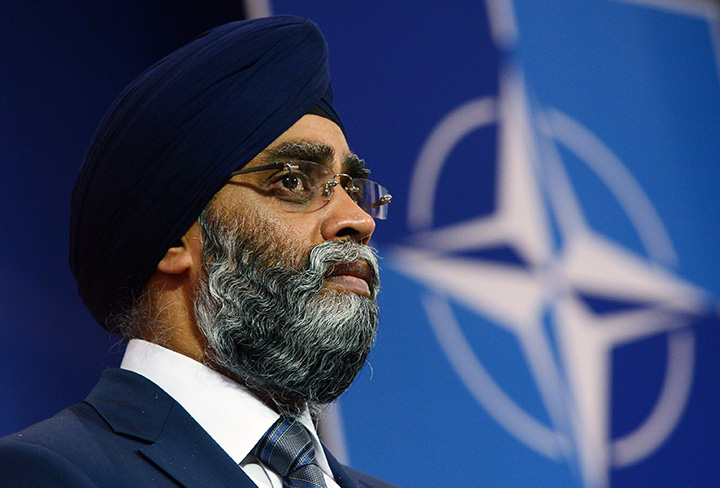Canada’s defence minister says the rules of engagement must apply in situations where troops encounter Canadians fighting for the so-called Islamic State, but that “our main priority is making sure that they don’t become a threat to Canada.”

Harjit Sajjan was responding to statements from various countries like the United Kingdom, France and Australia, where top officials have said that the preference is to kill foreign IS fighters before they can travel back home.
Britain’s Special Air Service, for instance, reportedly has a “kill list” of British jihadis marked for death at the hands of their own countrymen.
And last month, the top American envoy to the coalition fighting the terror group, Brett McGurk, said his mission is to ensure every foreign IS fighter in Syria dies in Syria.
“It’s important for every nation to look within and how to prevent any of their citizens getting involved, being recruited, into radical groups … I think that’s priority number one,” Sajjan said Friday in Halifax.
WATCH: Russian Defense Ministry tweets photo claiming to show U.S. is backing ISIS – except it’s from a video game

The defence minister is in Nova Scotia this weekend for the ninth annual Halifax International Security Forum, a gathering of top defence officials from around the world. He would not commit to any firm policy regarding the killing of Canadian IS fighters, but did say that Canada believes in international laws of armed conflict.

Get daily National news
“Our military is extremely professional,” Sajjan said.
“When it comes to any situation, regardless of where Canadian Armed Forces are dealing with any type of combattant, any international laws – the law of armed conflict – applies, and that’s something that we strictly enforce.”
READ MORE: Canada’s mission in Iraq shifts again with ISIS in retreat
Sajjan also refused to say Canada has had any discussions with its allies about engaging Canadian IS fighters in the field.
“When it comes to the foreign fighter questions, the number one priority for us is making sure (of) security for Canadians,” he said. “Our mission there is to advise and assist and build a capacity of the Iraqi security forces, and we’ll continue to do so. (Canadian soldiers) have rules of engagement for self-protection and the protection of their partners.”
Kurdish conflict
Sajjan was also asked on Friday about the ongoing conflict in northern Iraq between Iraqi Kurds and government forces. The two sides began fighting one another as IS retreated. On Friday morning, a top Kurdish official again called publicly on Canada to intervene and try to mediate the dispute. That official, Falah Mustafa Bakir, is scheduled to attend the forum in Halifax alongside Sajjan.
“Canada always will do our part where it’s necessary,” Sajjan said. “For us, stability is very important.”
While 95 per cent of IS territory has been retaken, he added, “I want to remind everybody that the threat is still not over. So what we’re pushing for is unity … This (conflict with the Kurds) is an issue that the Iraqi government has to resolve internally.”
READ MORE: Time for Canada to speak out on Iraqi-Kurdish conflict, says U.S. envoy
Canadian special forces in northern Iraq have, in the meantime, halted their military support of either side, and there is no clear timeline for when that mission might resume.
Sajjan said the support role would continue “when the situation is right.”


Comments